Yunnan Travel Notes - Part 3 (Signs On The Road)
This is a collection of photographs about signages that I saw during my recent trip in Yunnan.
The first one stopped me right in my tracks, and I had to do some body contortions to read it. The Chinese characters for this sign of a hostel in Kunming are written top-down on a narrow board, but then the board was installed sideways. While this is striking (I picked it up immediately out of the many other 'normal' signs in the neighborhood), I am not sure whether this serves any real purpose.
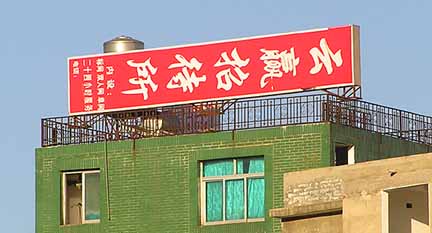
The next photo below was that of a painting of a tiger with a paper slip that reads: "Do not touch! Be careful that it may harm people!" Very funny indeed! And the tiger does look very mean.
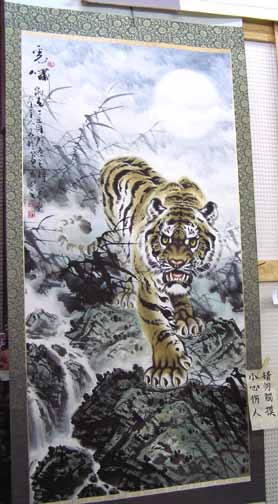
In the next photo, there are two small advertisements that were pasted on the wall of a private residence in the city of Dali. The bottom ad is pretty common all over China -- it is about the treatment of various forms of venereal diseases. What kind of society is this in which such advertisements proliferate? The top ad is for curing drug addiction, which may be more common in Yunnan due to its proximity to the Golden Triangle.
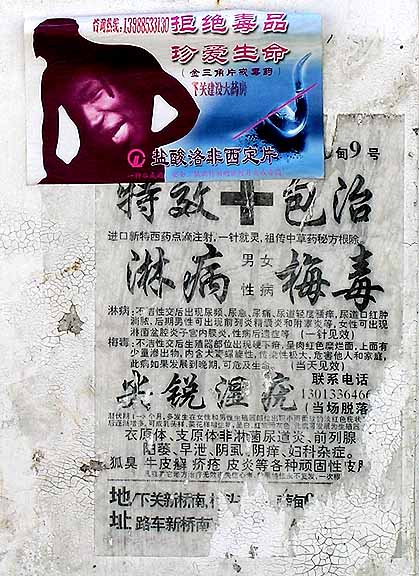
In the next photo below, there is a long wall on which various people have written down telephone numbers. There is no explanation as to what these numbers are for, but I was told by an informed source that 'everybody' knows that you call these numbers to obtain false identity papers and documents. Yes, it is quite illegal, but these numbers were obtained with forged papers and are disposable in the sense that they are discarded immediately after a deal, which makes it hard for the police to track down the criminals.

The next two photos were taken at the Daiguanlou park. There are perfectly decent trees there, but why do they feel nature is not good enough and it was necessary to use billboards instead? I am just thankful that this is not a widespread practice, for I cannot imagine what the Forbidden City or the Great Wall would look like after this kind of makeover.
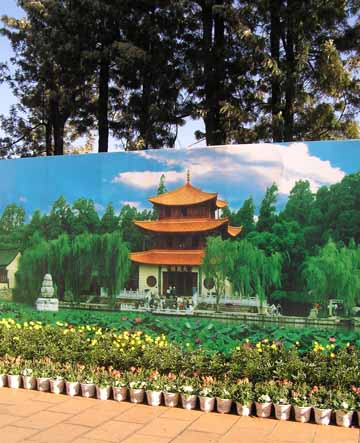
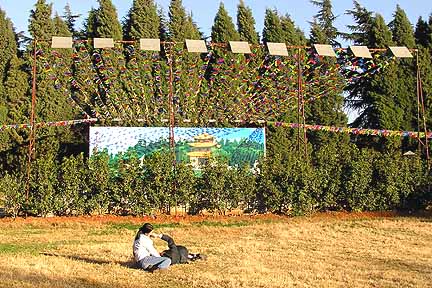
Next, I have a series of photographs of English-language notices. You can read for yourselves.

Yunnan Agricultural University, Kunming
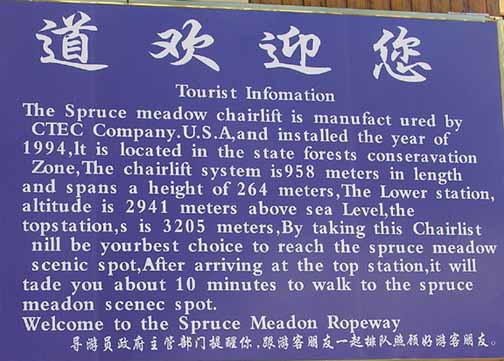
Spruce Meadow Chair Lift, Lijiang
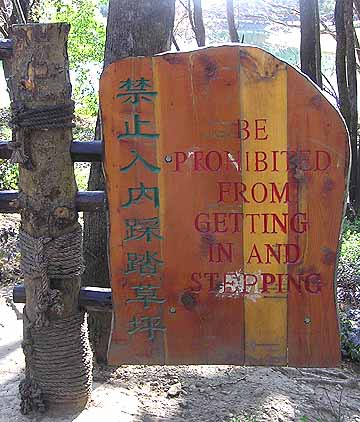
Spruce Meadow, Jade Dragon Snow Mountain, Lijiang
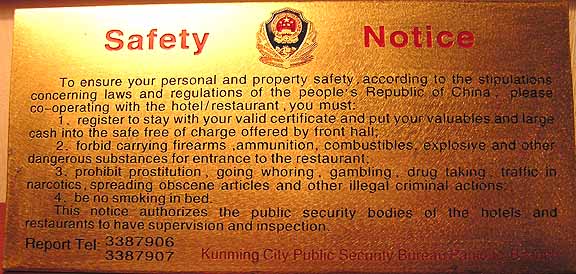
Hotel notice, Kunming

Butterfly Spring, Dali
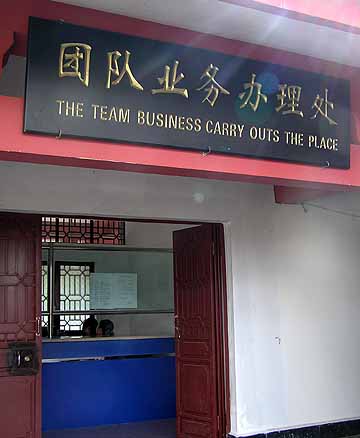
Three Pagodas, Dali
There was another 'beaut' that is missing here, as when the Lijiang postal office has a sign that says "Postcard Monopolist" when in fact it is really supposed to be a "Postcard Specialist."
In the United States, the percentage of people who know Chinese is significantly lower than the percentage of people who 'know' English in China. Although Chinese translations are seldom required in the United States, they tend to get it right when needed. English translations are increasingly needed all over China, but they tend to be done by local people who supposedly 'know' Chinese and end up butchering the job. For what you see above, I did not have to go out of my way as I simply went wherever the tourist group was going and took photographs whenever I see English translations appearing.